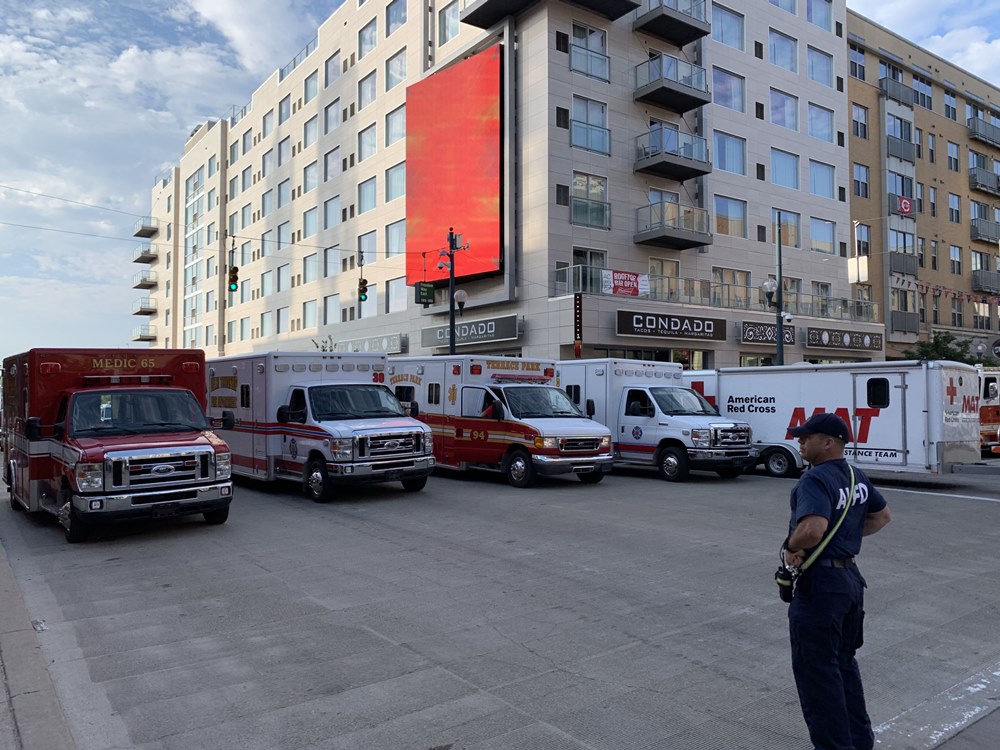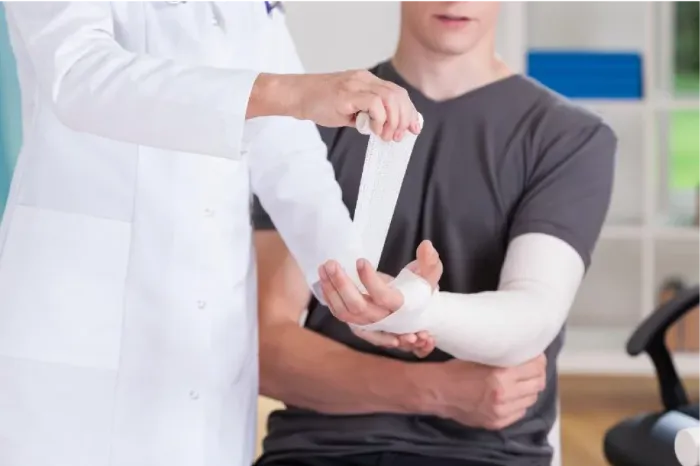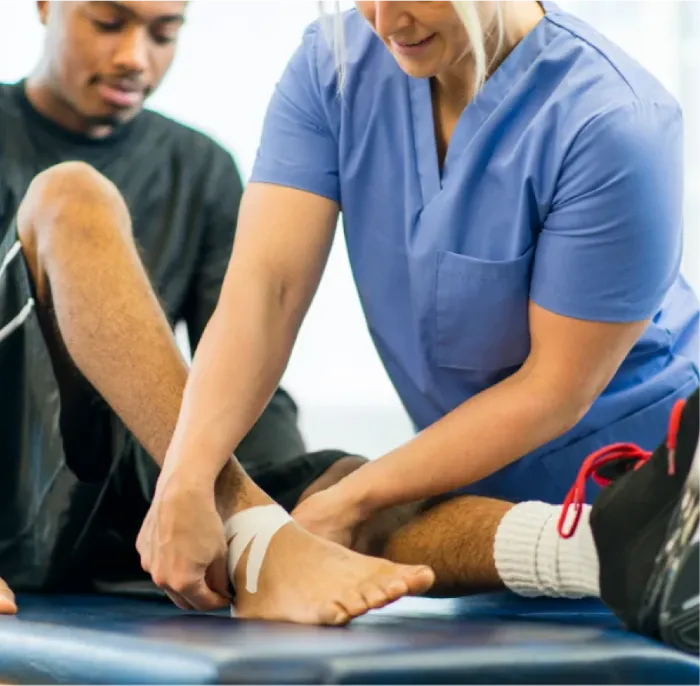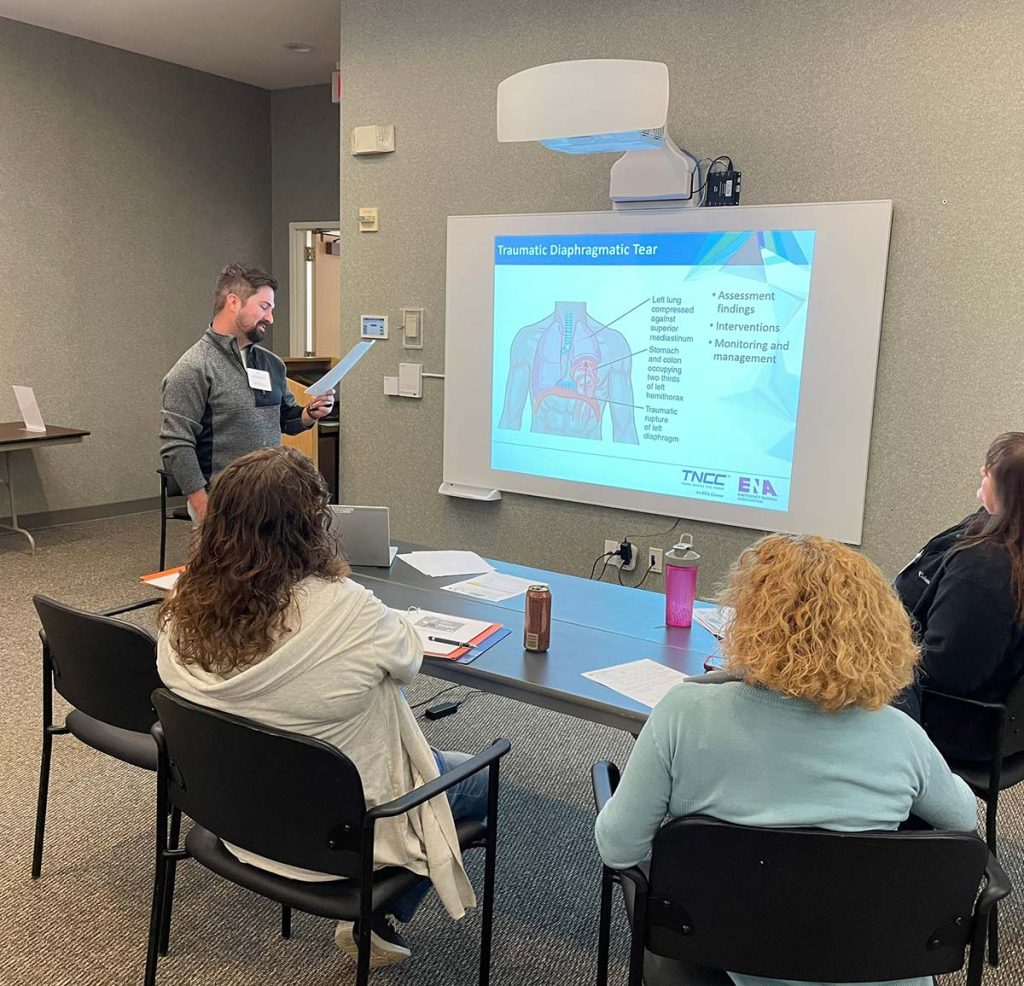Enhancing emergency preparedness
Public health emergencies have the power to devastate individuals and communities. Outcomes depend on how quickly and effectively we respond. The Health Collaborative facilitates collaboration among key emergency partners to ensure we’re all as prepared as possible to prevent, mitigate, respond to, and recover from emergency situations.

Rehearsing through tabletop exercises
Tabletop exercises are a valuable opportunity for multi-sector stakeholders to convene to practice and refine regional response strategies in a low-stress environment. These immersive sessions provide hands-on experience designed to enhance communication, decision-making, and adaptability during emergency situations.
Promoting information sharing
Effective, efficient communication is critical when responding to an emergency, which is why we have established a network that facilitates the seamless flow of critical information, best practices, and resources across our region. Staying connected enhances our collective readiness while allowing us to proactively address potential threats before they escalate.
Deploying vital resources
We store and maintain a regional cache of supplies and equipment, and collaborate with our partners to quickly distribute those resources when necessary. The COVID-19 pandemic showcased our agility and ability to rapidly allocate essential supplies to frontline responders. The strategic approach we developed during that crisis can now be applied to future situations, further enhancing our region’s response capabilities.
Supporting hospitals
Our role as proactive planners and responsive coordinators also includes coordinating federal grant dollars for hospitals to use in their disaster planning efforts as well as mutual aid agreements between hospitals to facilitate resource sharing during times of crisis. We also represent hospitals during emergencies by holding a seat at both the Hamilton County Emergency Operations Center (EOC) and the Regional EOC to support them in their response efforts.
Improving trauma care
Emergencies and trauma go hand in hand. To ensure our region’s healthcare providers are equipped to deliver the most adequate trauma care, The Health Collaborative works with local trauma centers, emergency rooms and EMS agencies to provide training and share valuable insights and best practices.




Emergency preparedness resources
Hospital Net Radio
A system that works to provide early notification to regional hospitals of an event that may result in multiple casualties. Used to enhance communication and coordination to and among hospitals with first-responders, ensuring timely identification of appropriate hospital response capabilities.
EMResource
A statewide bed availability platform used to determine short-term hospital, FSED, and long-term hospital bed availability to support regional preparedness and response. EMResource is available to hospitals, FSEDs, long term care facilities, EMS agencies, first responders, public health, dispatch centers, emergency management directors, and other healthcare partners. Data represented in EMResource is not for public consumption.
MARCS
An 800 MHz radio and data network that utilizes state-of-the-art trunked technology to provide statewide interoperability in digital clarity to its subscribers throughout Ohio and a 10-mile radius outside of Ohio. The MARCS system provides statewide, secure, reliable public service wireless communication for public safety and first responders.
EMTrack
A secure statewide patient tracking platform for tracking patients, primarily during Mass Casualty Incidents and facility evacuations, EMTrack is available to EMS agencies, first responders, hospitals, public health, and other emergency management partners. EMTrack is intended for anyone who supports efficient emergency response and improved health care outcomes. The app is available for iPhones and Androids.
To request access to EMResource and/or EMTrack, please submit form
Improving trauma care


Trauma Education
Quick links
Advanced Trauma Life Support (ATLS)
Advanced Trauma Life Support (ATLS®) is the standard of care identified by the American College of Surgeons (ACS) for physicians who intervene with trauma victims at all levels of clinical practice. ATLS® utilizes a systematic, concise methodology for assessment and initial stabilization of the multiple-injured trauma patient. ATLS® courses are presented in conjunction with the ACS Ohio Committee on Trauma and are designed for physicians and advanced practice nurses, though transport staff and respiratory therapy staff often audit these courses.
Emergency Nursing Pediatric Course (ENPC)
Trauma Nursing Core Course (TNCC)
TRAUMA REGISTRY

Participating health systems & hospitals include:
- Bon Secours Mercy Health
- Cincinnati Children's Hospital Medical Center
- The Christ Hospital
- TriHealth
- UC Health
- Adams County Regional Medical Center
- Clinton Memorial Hospital
- Atrium Medical Center (Premier Health)
- Kettering Health Hamilton
A regional registry provides several benefits to participating hospitals and the public. When a trauma registry exists at a regional level:
- Hospitals can receive their own data for trending purposes
- Hospitals can use the regional data to benchmark their effectiveness against other regional hospitals.
- Participation allows for quality improvement and quality assurance to improve care delivered to trauma victims in the Tristate
The Tristate Trauma Registry also serves as a repository to hospital trauma registries to facilitate the transfer of trauma data as mandated by law. Confidentiality of patients and hospitals is maintained within the Regional Registry and when exporting required data to the State Registry


